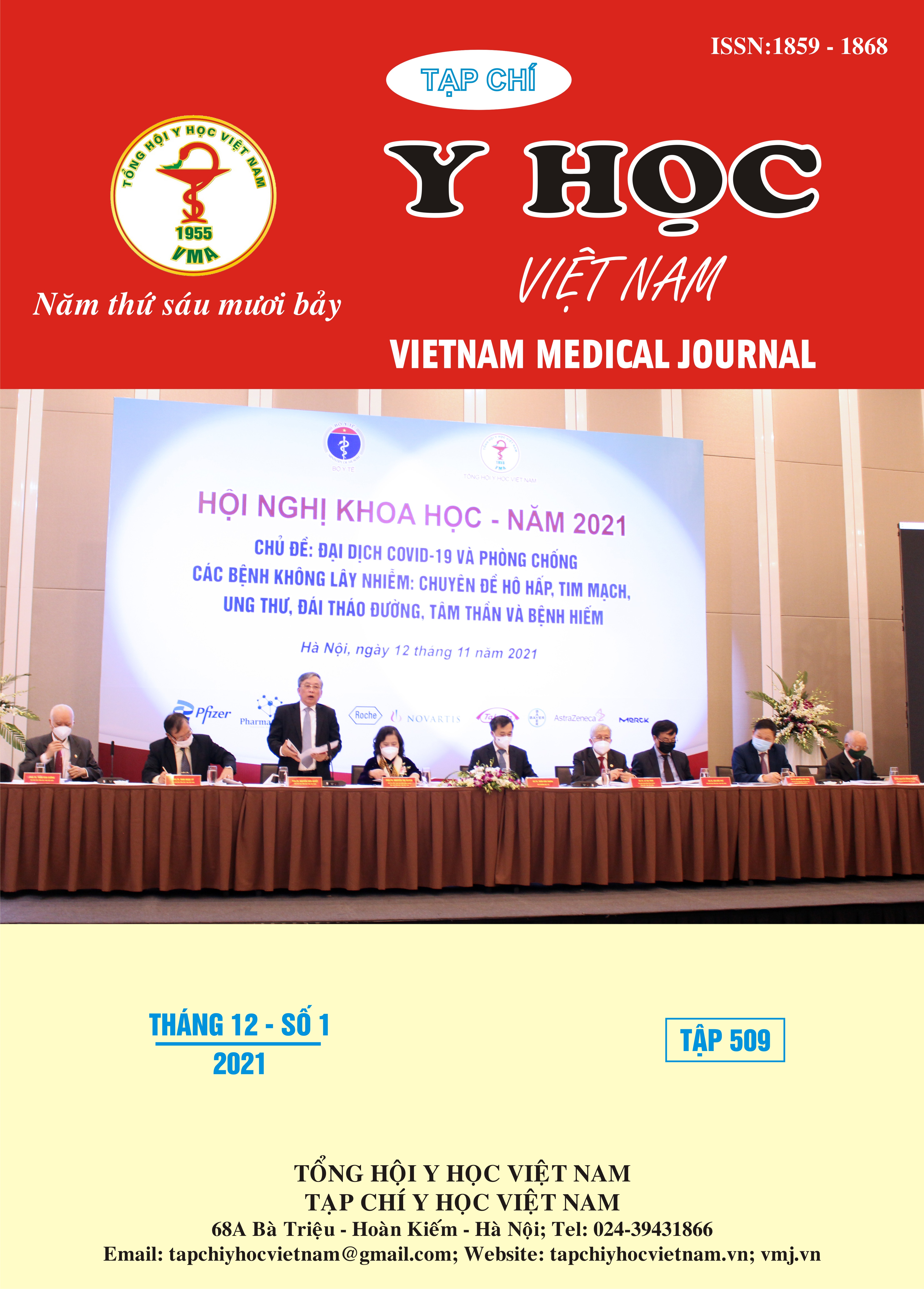COLLATE THE CLINICAL CHARACTERISTICS WITH ENDOSCOPIC IMAGES OF ACUTE OTITIS MEDIA IN CHILDREN AT E HOSPITAL FROM 2019 – 2020
Main Article Content
Abstract
Background: Acute otitis media (AOM) is an infection and accumulation of fluid in the middle ear. The disease that usually begins suddenly and is in the short duration, with clinical symptoms relating to endoscopic images. Objective: Description of clinical characteristics of acute otitis media in children at Hospital E from 2019-2020. Materials and methods: A cross-sectional descriptive study, included 40 patients, under 16 years old, diagnosed with AOM, treated at the Department of Otolaryngology in E Hospital from 2019 September to 2020 April. Results and discussions: Mild fever: 37.5%, moderate fever: 20%, high fever: 22.5%; Mild otalgia accounted for 40%, severe otalgia 25%; No ear discharge 77.5%, ear discharge accounted for 22.5%; congested tympanic membrane accounted 35%, pus-filled bulging tympanic membrane 42,5%, perforated tympanic membrane 22,5%. Conclusions: Combine the clinical sumptoms and endoscopic images to be able to diagnose exactly and diagnose the stage of acute otitis media, thereby bringing out to make treatment guidelines specific and appropriate.
Article Details
Keywords
Acute otitis media
References
2. Robert M Siegel, James P Bien: Acute otitis media in children: A continuing story. Pediatrics in Review; Vol.25 No.6; 25(6):187-93 (2004).
3. Helen Atkinson, Sebastian Wallis et al: Acute otitis media. Postgraduate Medicine; 127(4): 386–390 (2015).
4. Shaikh, N. et al. Responsiveness and construct validity of a symptom scale for acute otitis media. Pediatr. Infect. Dis. J. 28, 9–12 (2009).
5. Rothman, R., Owens, T. & Simel, D. L. Does this child have acute otitis media? JAMA 289, 1633–1640 (2003).
6. Niemela M, Uhari M et al: Lack of specific symptomatology in children with acute otitis media. The padiatric infectious disease journal; 13(9):765-768 (1994).
7. Staphen Berman: Management of acute and chronic otitis media in pediatric practice. Current opinion in pediatrics; 7(5):513-22 (1995).
8. Kay, D. J., Nelson, M. & Rosenfeld, R. M. Meta-analysis of tympanostomy tube sequelae. Otolaryngol. Head Neck Surg. 124, 374–380 (2001).
9. Ah Tye, C., Paradise, J. L. & Colborn, D. K. Otorrhea in young children after tympanostomy-tube placement for persistent middle-ear effusion: prevalence, incidence, and duration. Pediatrics 107, 1251–1258 (2001).


